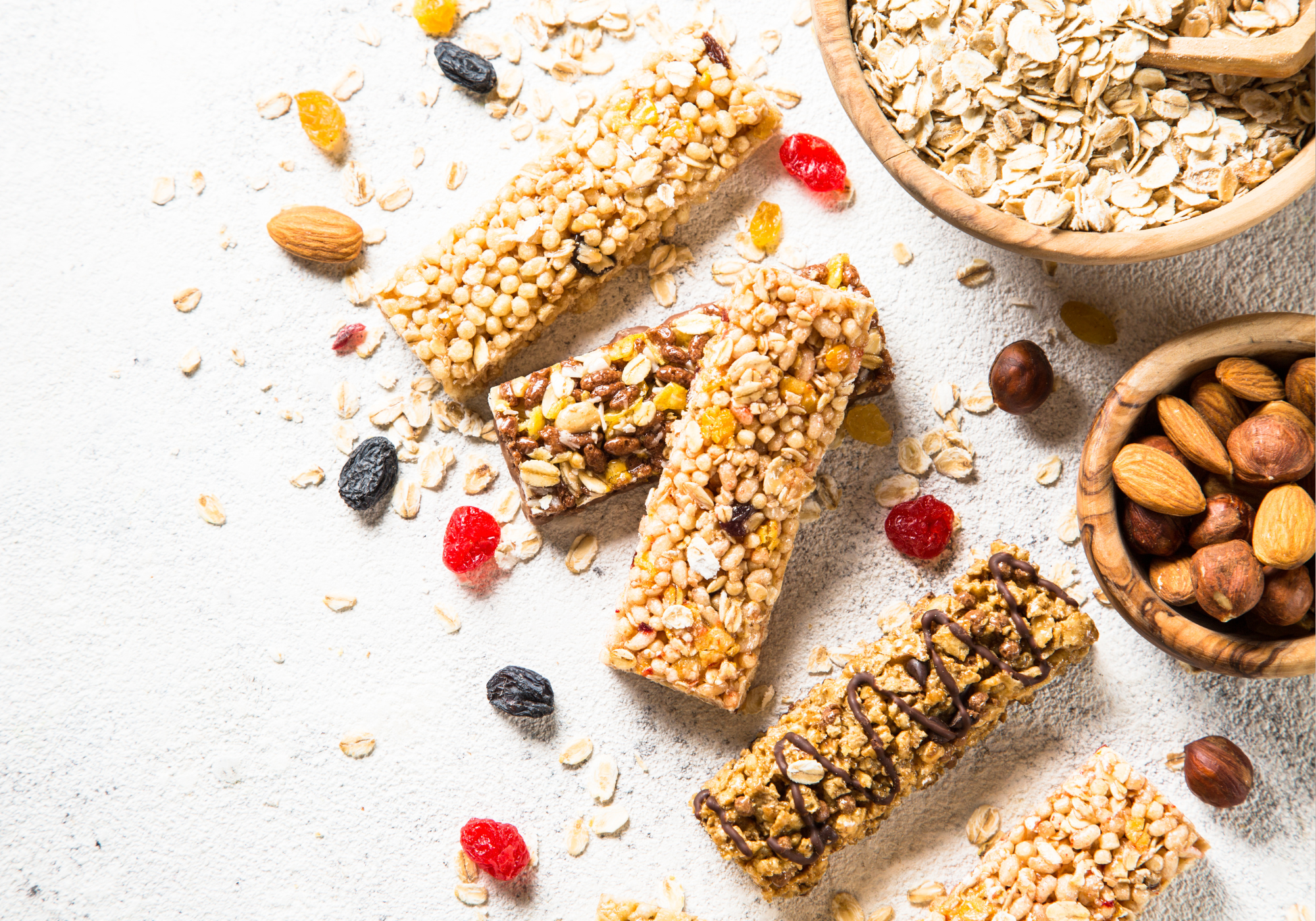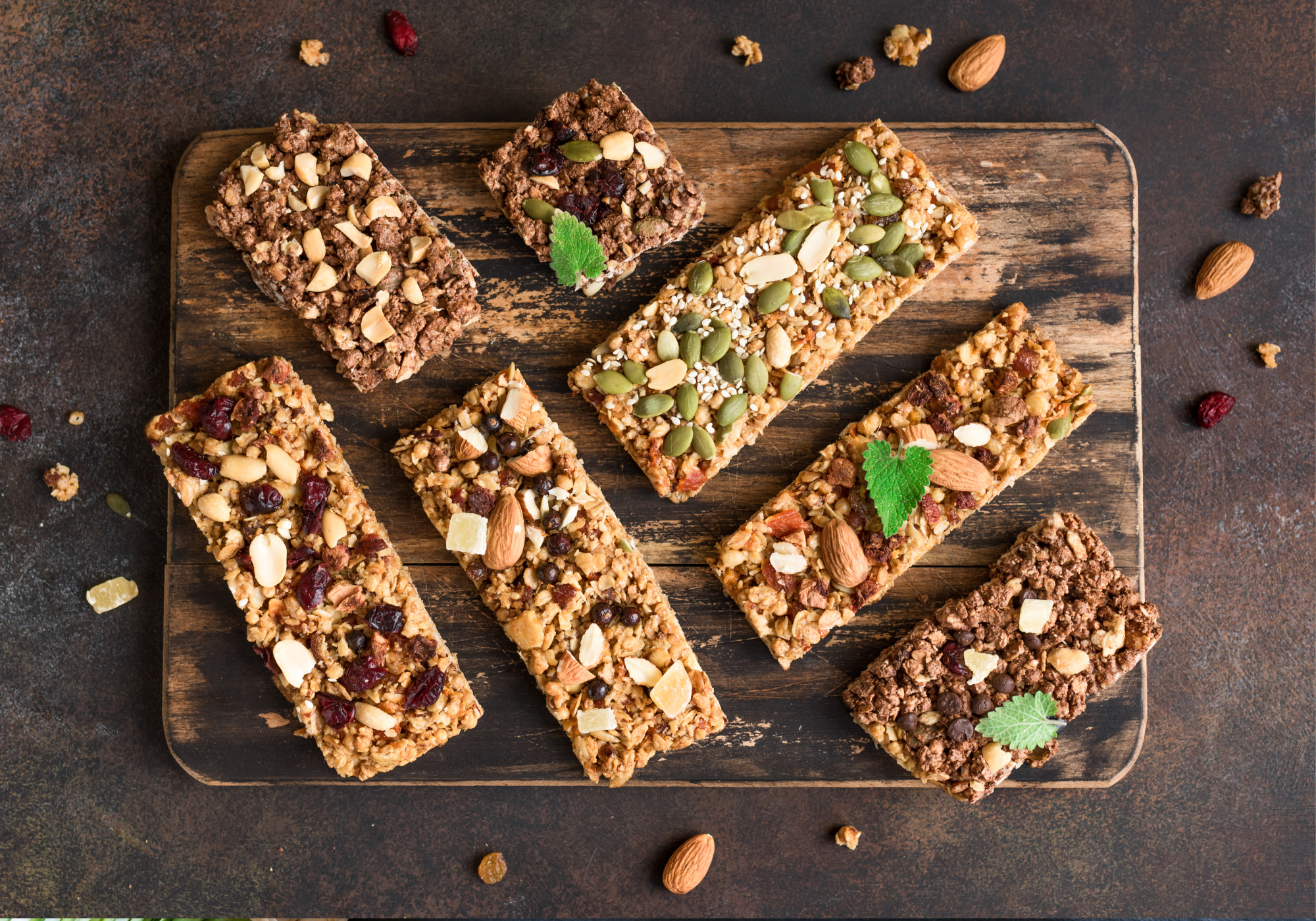Everything You Need to Know About the Best Protein Bars for Optimal Health
What is a Protein Bar?
Protein bars are a convenient and nutritious snack designed to provide a significant amount of protein along with other essential nutrients.
They are specifically formulated to meet various dietary needs, whether it’s muscle recovery, meal replacement, or simply providing a healthy snack option on the go.
Definition and General Purpose
A protein bar typically contains a high proportion of protein relative to carbohydrates and fats. The primary purpose of protein bars is to deliver a quick and efficient source of protein to support muscle repair, growth, and overall nutrition.
They are particularly popular among athletes, fitness enthusiasts, and busy individuals who need a portable, nutritious option.
Types of Protein Bars
There are several types of protein bars, each tailored to different needs and preferences:
-
Meal Replacement Bars: These bars are designed to substitute a meal by providing a balanced mix of protein, carbohydrates, fats, fiber, and often added vitamins and minerals. They are ideal for those who need a convenient alternative to a regular meal when time is limited.
-
High Protein Bars: These bars contain a higher amount of protein per serving, typically ranging from 15 to 30 grams. They are perfect for post-workout recovery to aid muscle repair and growth.
-
Energy Bars: While not as high in protein as high-protein bars, energy bars offer a good balance of protein and carbohydrates, making them suitable for a quick energy boost before or during physical activities.
-
Low-Carb/High-Protein Bars: Popular among those following ketogenic or other low-carb diets, these bars are high in protein and fats but low in carbohydrates, helping to maintain ketosis.
-
Natural Protein Bars: Made with whole, unprocessed ingredients, these bars are ideal for those looking for a clean, natural source of protein without artificial additives.
-
Sugar-Free Protein Bars: Designed for those who want to avoid added sugars, these bars often use natural sweeteners or are completely unsweetened, making them suitable for diabetics or those on a low-sugar diet.
Common Ingredients
The ingredients in protein bars vary widely depending on their intended use. Here are some typical components:
- Protein Sources: Common sources include whey protein, pea protein, soy protein, and casein. The type of protein affects the bar's digestibility and suitability for different dietary restrictions.
- Carbohydrates: Ingredients like oats, rice crisps, or other grains provide energy and texture.
- Fats: Healthy fats from nuts, seeds, or oils like coconut oil enhance satiety and flavor.
- Sweeteners: Depending on the bar, sweeteners can range from natural sugars like honey to sugar alcohols or artificial sweeteners in sugar-free versions.
- Fiber: Added to aid digestion and increase the feeling of fullness, common sources include chicory root, oats, and other plant fibers.
- Vitamins and Minerals: Some bars are fortified with additional nutrients to enhance their nutritional profile.
Incorporating protein bars into your diet can provide a convenient, nutritious boost to meet your dietary needs, whether you’re looking to build muscle, manage your weight, or simply have a healthy snack on hand.
Benefits of Protein Bars
Protein bars are more than just a convenient snack; they offer numerous health benefits that make them a valuable addition to your diet. Here are some key benefits of incorporating high protein bars into your routine:
Provides Energy
One of the primary benefits of protein bars is their ability to provide a quick and sustained source of energy. This makes them an excellent choice for those needing an energy boost during busy days or before and after workouts.
The combination of protein and carbohydrates in protein bars for energy helps maintain stable blood sugar levels, preventing energy crashes and keeping you fueled throughout the day.
Supports Muscle Recovery and Growth
High protein bars are particularly beneficial for athletes and those engaged in regular physical activity.
Protein is essential for muscle repair and growth, and consuming a protein bar post-workout can help replenish the amino acids needed for muscle recovery. This aids in reducing muscle soreness and improving overall muscle function.
Convenient and Portable Nutrition
The convenience of protein bars cannot be overstated. They are easy to carry and require no preparation, making them an ideal option for busy individuals who need a nutritious snack on the go.
Whether you keep one in your gym bag, backpack, or desk drawer, protein bars provide a quick and healthy option when hunger strikes.
Aids in Weight Management
Protein bars can also support weight management efforts. The high protein content helps promote satiety, reducing the likelihood of overeating.
When combined with a balanced diet and regular exercise, protein bars can help control cravings and maintain a healthy weight.
Opting for a sugar-free protein bar can further aid in reducing unnecessary calorie intake.
Supports Dietary Needs and Preferences
There are various types of protein bars available to meet different dietary needs and preferences. For those following a low-carb or ketogenic diet, low-carb/high-protein bars are an excellent choice.
Natural protein bars made with whole, unprocessed ingredients cater to individuals looking for clean eating options. Sugar-free protein bars are perfect for those managing their sugar intake, including diabetics.
Boosts Nutrient Intake
Many protein bars are fortified with essential vitamins and minerals, providing an additional nutrient boost. This can be particularly beneficial for individuals who may have gaps in their diet.
By choosing high protein bars with added nutrients, you can enhance your overall nutrient intake effortlessly.
Incorporating protein bars into your diet can provide these significant health benefits, making them a versatile and valuable addition to your daily nutrition plan.
Whether you're looking for a convenient energy source, support for muscle recovery, or a tool for weight management, protein bars offer a practical solution to meet your nutritional needs.
Different Types of Protein Bars
Protein bars come in a variety of types, each designed to meet specific dietary needs and preferences. Understanding the different types of protein bars can help you choose the best one for your lifestyle and nutritional goals.
High Protein Bars
High protein bars are formulated with a higher protein content, typically ranging from 15 to 30 grams per bar. These bars are ideal for those looking to build muscle, enhance muscle recovery, or increase their daily protein intake.
The high protein content helps in repairing muscle tissues and promoting muscle growth, making them perfect for post-workout recovery. Altayba offers the Fellas Foods High Protein Bar, which is an excellent choice for those seeking a substantial protein boost.
Sugar-Free Protein Bars
For individuals managing their sugar intake, sugar-free protein bars are an excellent option. These bars use alternative sweeteners such as stevia, erythritol, or are completely unsweetened, making them suitable for diabetics or those on a low-sugar diet.
Altayba stocks a variety of sugar-free protein bars that provide all the benefits of a traditional protein bar without the added sugars.
Natural Protein Bars
Natural protein bars are made with whole, unprocessed ingredients, offering a clean and natural source of protein. These bars avoid artificial additives, preservatives, and sweeteners, making them ideal for those who prefer a more natural approach to their diet.
The Fellas Foods Protein Bar available on Altayba is a prime example, featuring high-quality, natural ingredients that align with clean eating principles.
Protein Bars for Energy
Designed to provide a quick energy boost, protein bars for energy typically contain a balanced mix of protein and carbohydrates. These bars are perfect for a pre-workout snack or for maintaining energy levels throughout the day.
They help in stabilizing blood sugar levels and preventing energy crashes, ensuring you stay fueled and focused.
Low-Carb/High-Protein Bars
Low-carb/high-protein bars are popular among those following ketogenic or other low-carb diets. These bars maintain a high protein content while keeping carbohydrates to a minimum, helping to maintain ketosis and support weight loss.
They are an excellent choice for anyone looking to reduce their carb intake without sacrificing protein.
Meal Replacement Bars
Meal replacement bars are designed to provide a balanced mini-meal in a convenient package. Along with a substantial amount of protein, they contain carbohydrates, fats, fiber, and often added vitamins and minerals.
These bars are ideal for busy individuals who need a nutritious meal on the go. They help in keeping you full and provide sustained energy, making them a practical alternative to traditional meals.
Allergen-Free Protein Bars
Catering to those with food allergies or intolerances, allergen-free protein bars are free from common allergens such as gluten, dairy, soy, and nuts.
These bars provide a safe and convenient way for individuals with dietary restrictions to supplement their protein intake without worrying about allergic reactions.
Understanding the different types of protein bars available can help you make an informed decision based on your specific nutritional needs and lifestyle. Whether you need a high protein bar for muscle recovery, a sugar-free protein bar for managing sugar intake, or a natural protein bar for clean eating, there are plenty of options to choose from.
Incorporating these protein bars into your diet can provide the nutritional support you need to achieve your health and fitness goals.
Is a Protein Bar Safe?
Protein bars are generally considered safe for most people, but it's essential to be aware of potential concerns and to choose the right products. Here, we address common safety concerns and offer tips for making informed choices about protein bars.
Understanding Ingredients
The safety of a protein bar largely depends on its ingredients. It's crucial to read labels and understand what you are consuming. Here are some components to watch out for:
- Added Sugars: Some protein bars contain high levels of added sugars, which can lead to spikes in blood sugar levels and contribute to weight gain and other health issues. Look for sugar-free protein bars or those with minimal added sugars.
- Artificial Sweeteners and Preservatives: Many bars use artificial sweeteners like sucralose or aspartame, which can cause digestive issues for some people. Preservatives and artificial flavors can also pose health risks when consumed in large quantities.
- Low-Quality Protein Sources: Not all proteins are created equal. Some protein bars use collagen or gelatin, which are not complete protein sources. It's better to choose bars with high-quality protein like whey, pea, or soy protein.
Allergens
Protein bars can contain common allergens such as nuts, dairy, soy, and gluten. If you have food allergies, it's essential to choose allergen-free protein bars. These are specifically formulated to be free from common allergens, ensuring safe consumption.
Digestive Issues
Some ingredients in protein bars can cause digestive discomfort. Sugar alcohols, often used in sugar-free protein bars, can lead to bloating, gas, and diarrhea if consumed in large amounts. Similarly, high fiber content in some bars can cause digestive issues if your body isn't used to it.
Caloric Content
While protein bars can be a convenient snack or meal replacement, their calorie content can vary significantly. High protein bars and meal replacement bars often contain more calories to provide sustained energy, but consuming them without considering their caloric impact can lead to unintended weight gain.
It's important to match the bar's calorie content to your dietary needs and goals.
Tips for Safe Consumption
- Read Labels: Always check the nutrition label and ingredient list to understand what you are consuming. Look for protein bars with minimal added sugars, no artificial sweeteners, and high-quality protein sources.
- Check for Allergens: If you have food allergies, ensure the bar is free from the specific allergens that affect you. Choose allergen-free protein bars when necessary.
- Monitor Portion Sizes: Be mindful of the caloric content and portion size. Consuming a bar designed as a meal replacement as a snack can add unnecessary calories to your diet.
- Watch for Digestive Issues: Start with small portions if you're trying a new protein bar to see how your body reacts, especially if it contains sugar alcohols or high fiber content.
By being aware of these factors and making informed choices, you can safely incorporate protein bars into your diet. Remember that protein bars should complement a balanced diet rich in whole foods and not replace essential nutrients from natural food sources.
How to Choose the Best Protein Bar in the UAE
Choosing the best protein bar in the UAE requires careful consideration of several factors to ensure you meet your nutritional needs and preferences. Here are some guidelines to help you make an informed decision:
Factors to Consider
-
Nutritional Content:
- Protein Content: Look for high protein bars with at least 10-20 grams of protein per serving to support muscle growth and recovery.
- Carbohydrates and Sugars: Check the amount of carbohydrates and sugars. If you’re looking for a low-carb or sugar-free protein bar, ensure the bar fits your dietary goals.
- Fats and Fiber: Consider the fat and fiber content. Healthy fats and dietary fiber can help keep you full longer and aid in digestion.
-
Ingredient Quality:
- Choose natural protein bars that use whole, unprocessed ingredients. Avoid bars with artificial sweeteners, preservatives, and additives to reduce the risk of digestive issues and allergic reactions.
- Look for bars with recognizable, simple ingredients lists. The shorter and more natural the list, the better.
-
Taste and Texture:
- Taste and texture are important for consistent consumption. Choose flavors and textures that you enjoy to ensure you’ll keep eating them regularly.
-
Dietary Restrictions:
- If you have food allergies or intolerances, opt for allergen-free protein bars. These bars are specifically formulated to exclude common allergens like gluten, dairy, soy, and nuts.
Here are some top recommended protein bars available in the UAE market:
-
- Made with natural ingredients, providing a balanced mix of protein, carbohydrates, and healthy fats.
- Ideal for those seeking a clean, natural protein source.
-
Fellas Foods High Protein Bar:
- Contains a higher amount of protein per serving, perfect for post-workout recovery and muscle growth.
- Free from artificial sweeteners and preservatives, ensuring a natural and healthy snack option.
Protein bars have become a versatile and convenient nutritional option for many people, whether you're an athlete looking for muscle recovery, a busy professional needing a quick meal replacement, or someone seeking a healthy snack.
Understanding the different types of protein bars and their specific benefits can help you make informed choices that align with your dietary needs and lifestyle goals.
By following the guidelines and recommendations provided in this comprehensive guide, you can find the perfect protein bar to meet your nutritional goals and support your health and wellness journey.
Whether you need a post-workout recovery snack, a meal replacement, or a quick energy boost, there's a protein bar out there that fits your needs.



